
Candida Martinelli's Italophile Site

Main
Page This family-friendly site celebrates Italian culture for the enjoyment of children and
adults. Site-Overview
What an honor it
would be if Giovanni Boldini, Zanin to his friends, knew his portrait
hung in the Uffizi Galleries in Florence, his old stomping and training
ground.
Quite an honor for a young man from Ferrara, 8th
of 13 children, son of a classical painter.
And he was honored in France with the Legion d'Honneur for his
management of the Italian Section of the Paris Exposition of 1889. Boldini was know in his circle of friends as a small (he was very
short) bon-vivant. He loved good company, good food, good wine,
fine clothes and beautiful women. Sounds like a typical Italian
man.
This was the period of his greatest fame, as a belle-époque
portraitist. To reach the tops of his large canvases, he either
sat on a stack of telephone books, or climbed a ladder he kept in his
studio in Paris. His character was patient and intense when working,
often covered in paint, eccentric and childlike when not working.
Everyone described him as loveable and Latin-tempered. He liked
lots of praise and compliments from his sitters while working on their
portraits. He wanted very much to please his portrait subjects,
which made him a very popular portraitist. The only books I've seen about
Boldini are either out of print, or from Rizzoli, the Italian publisher.
Best to visit a Rizzoli bookstore and look at the book to see if it's worth the
nearly 300 US$ that seems to be the price-tag!
This photograph of Giovanni Boldini is from 1910. This
is one of my Boldini favorites. He also studied under other accomplished artists, gaining a
reputation even at that young age as an accomplished portrait painter.
He then studied in Florence at the age of 20, at the Scuola
del nudo (the School of Nudes), a subject he would return to only in
old age. Giovanni combined work and study for many years, training in
Paris and London, and Holland and Germany. He moved to
Paris but continued traveling for his work. He developed his
own, distinct style, and his portraits grew in fame, helped
greatly by a portrait commissioned by Giuseppe Verdi in 1886,
the biggest celebrity of his day. Verdi gave Boldini an introduction into the world of opera, which
led to many commissions for portraits, and to many intimate
paintings of opera fans in theatres and cafes around Europe.
You can see his paintings in museums around the world,
including the N.Y. Metropolitan Museum, the Musée d’Orsay in Paris,
the National Portrait Gallery in London, the Legion of Honor Fine
Arts Museum in San Francisco, and the National Gallery of Australia.
And his paintings are reproduced on prints, posters and greeting
cards. But most of Boldini's paintings remain in private collections.
This is because most of his paintings were commissioned portraits,
society portraits. Everyone who was anyone HAD to have
their portrait (or their wife's portrait) painted by Boldini. Boldini's paintings showed his subject in soft-focus,
elongated, in movement, alive, and sophisticated. He was
even dubbed the King of Swish, and looking at his portraits of
women, you can see why. His portraits were flattering,
and it looked like the women had just turned around to look at him
seductively, their dress swishing around them.
The brush work on his paintings was swift and bold.
It is the masterful brushwork that gives his paintings the
sense of motion. He also painted landscapes in the naturalistic style of his day,
influenced by the Macchiaioli schooled artists he knew in
Florence, and worked on engravings, with pastels, watercolors and
etchings. Only toward the end of his long life, did his style
change, becoming more impressionistic (possibly due to his
failing eyesight), using mainly dark,
rich colors. His subjects changed as well. He no longer relied on
portraits for a living, so he began painting subjects he wanted to
paint, which seemed to be lots of nude women. Perhaps this was
just his Italian nature exerting itself, and a return to his
preferred youthful choice of subject. Another change that came late in life was the bachelor Boldini
finally married. To quote from a magazine article:
In 1929, aged 86, he suddenly married. At his wedding breakfast he
made a little speech:
“It is not my fault if I am so old, it’s
something which has happened to me all at once.” He died of pneumonia while in Paris, and is buried in his
hometown of Ferrara, Italy.
Actress Sarah Bernhart
Mrs. Drexel
Madame Leclanche
Princess Bubesco
Artist Toulouse Lautrec
1903 Miss Bell
1888 Emiliana Conca de Ossa
Paris street scene
The Giovanni
Boldini Site offers a lovely gallery, and a biography that was
lifted from this page (please add a link back to my site!), which I'll
take as a compliment.

Giovanni
Boldini - Portrait Artist
![]()
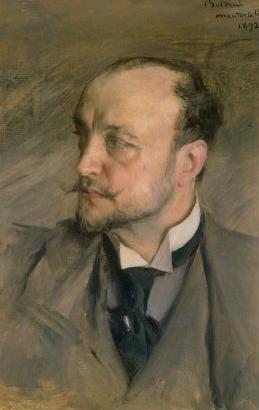
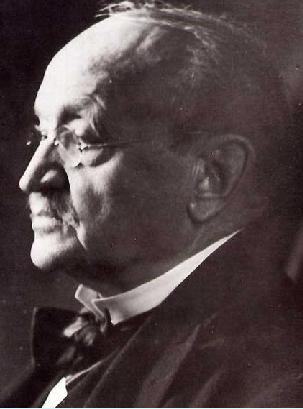
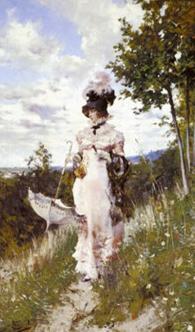
Giovanni Boldini enjoyed a long and successful artistic career
(b.1842 - d.1931). Born in Ferrara, Italy in 1842 and trained on the
Italian Renaissance masters from childhood with his religious
artist-father, Antonio Boldini.

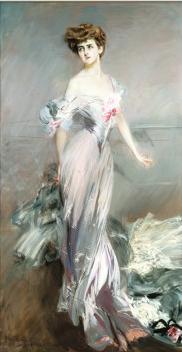
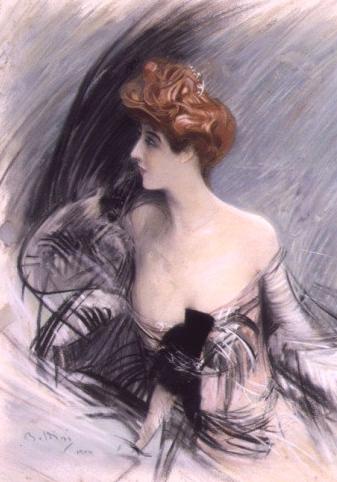
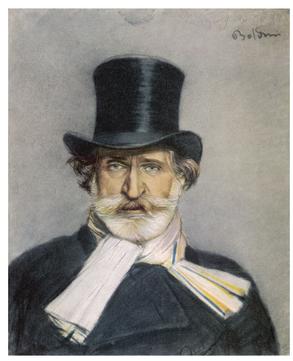
1886
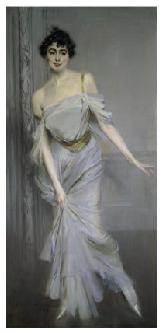
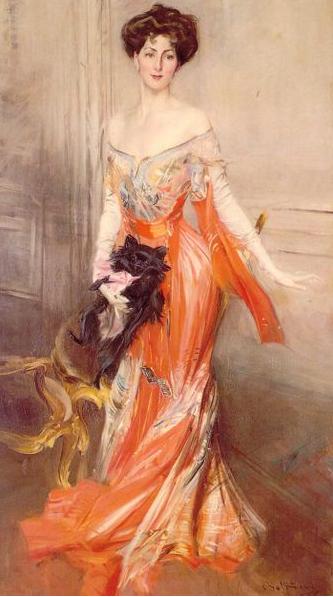
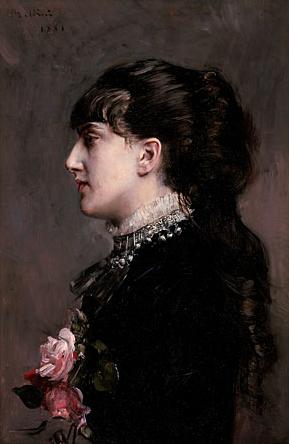
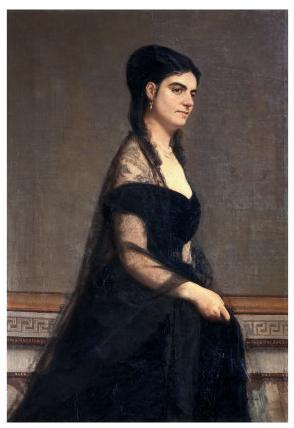
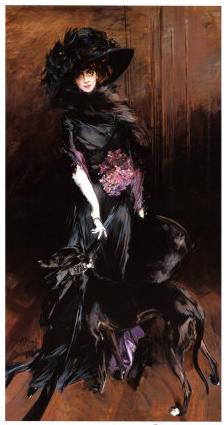
1908
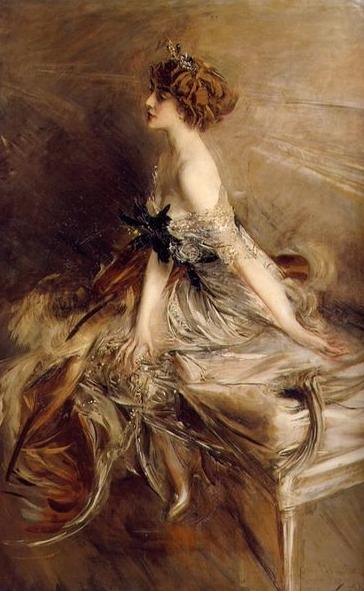
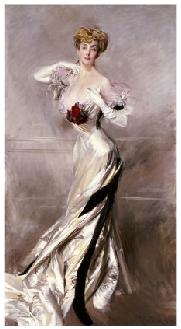
1905
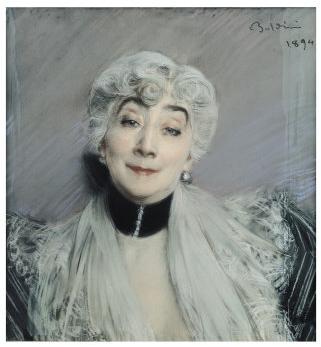
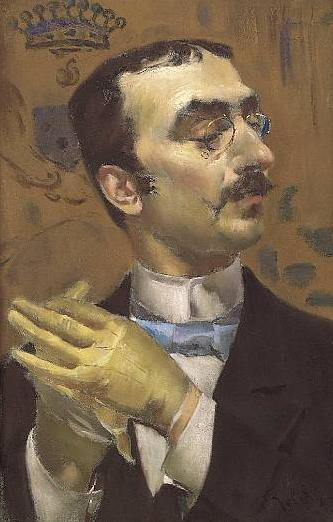
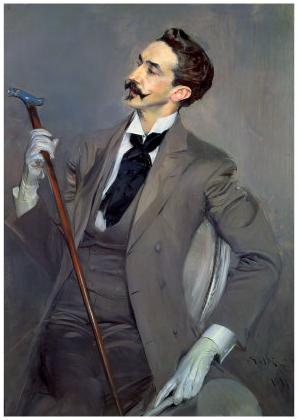
1897
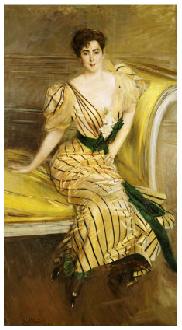
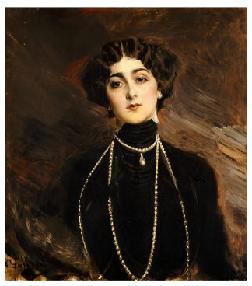
1901
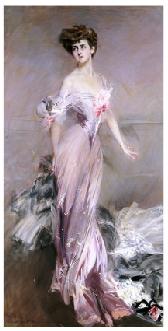
1906
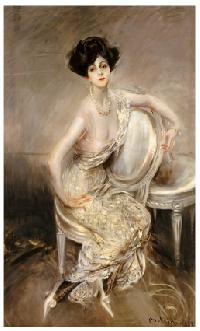
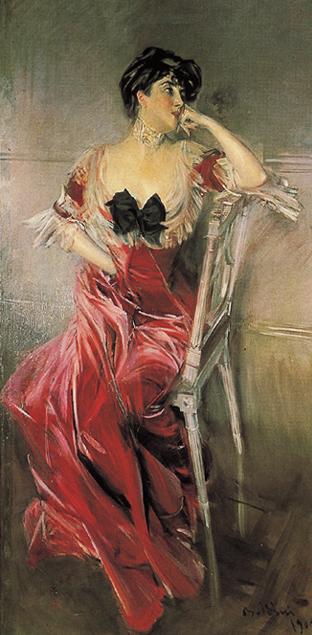
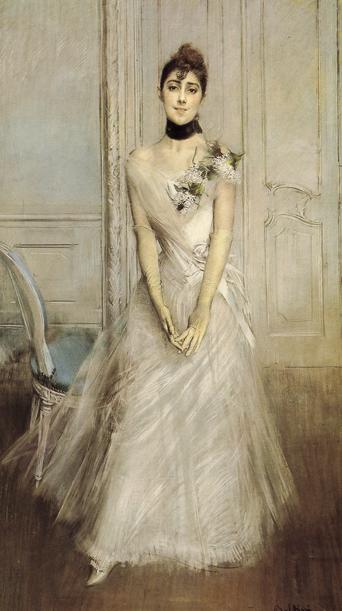
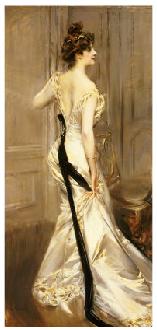
1905
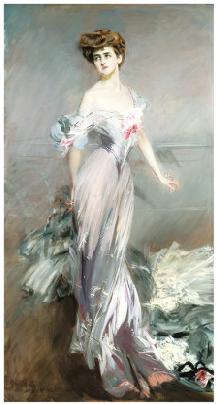
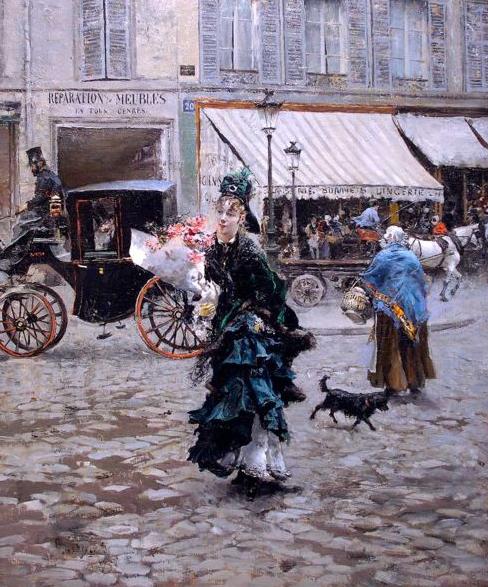
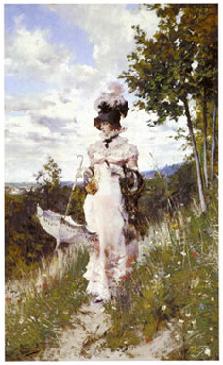
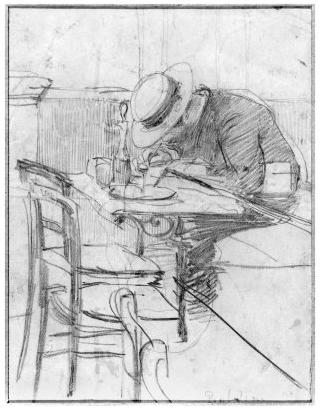
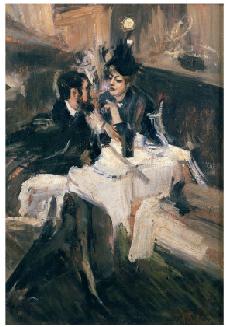
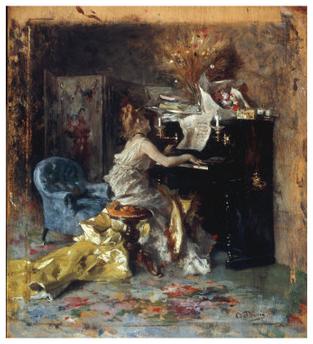
For a wonderful gallery
of Boldini's work, including some of his late nudes, visit the
ARC
site.
For a copy of the 1933 Time Magazine article about Boldini the
portrait painter, visit this
gallery/site. The article appears after the biography.